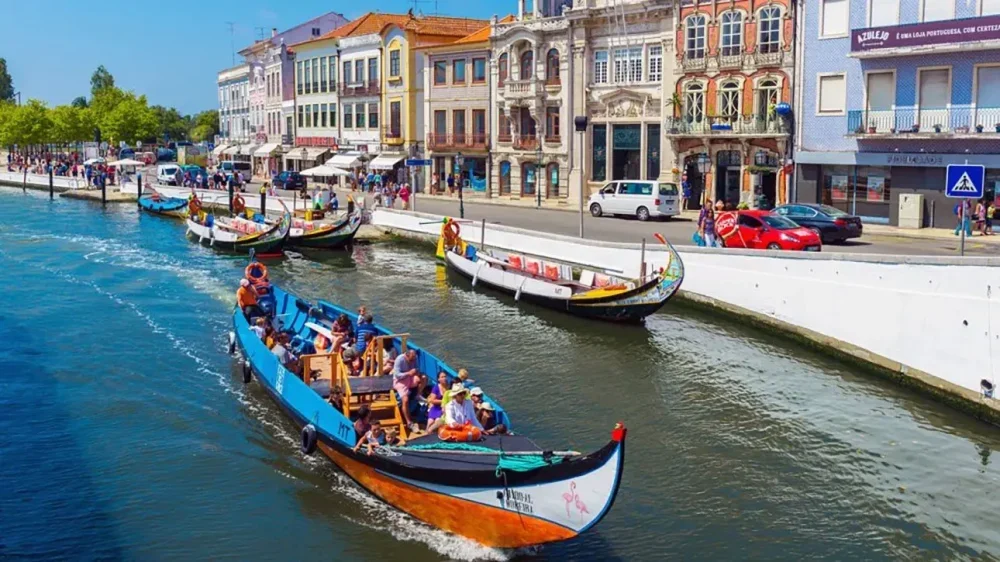Moving to Southern Europe is a conscious step driven by personal, professional, or investment motives. Against the backdrop of migration trends, the benefits of living in Portugal for foreigners are subject to systematic analysis. Considering the available visa programs, stable economy, mild climate, and welcoming environment, the country emerges as a sustainable immigration destination.
On the other hand, no country is without its challenges: the local job market, healthcare specifics, cost of living, and cultural differences all contribute to the full picture.

Climate and Ecology as Drivers of Attractiveness
The first thing expats notice is the comfortable climate. The southern and central regions of the country are known for moderate temperatures year-round, mild winters, and dry summers. The sea air, abundance of sunny days, and developed network of natural parks all make staying in the country particularly favorable.
In the context of a healthy lifestyle, the benefits of living in Portugal for foreigners are often associated with ecology. Many areas, especially near the Atlantic, are not subject to heavy industry, reducing air and water pollution levels.
Social System and Access to Healthcare
Another factor that determines the benefits of living in Portugal is the healthcare system for foreigners. While state institutions may not always be known for their speed of service, they offer free or partially paid access to most services.
Having a resident card grants the right to use healthcare on par with citizens. Private medical centers offer faster consultations and a wide range of procedures, from family medicine to specialized services.
Education and Children’s Integration
For migrant families, the benefits of living in Portugal are also evident through the education system for foreigners. The country has both state schools with integration based on place of residence and private institutions, including international schools with English-language education.
Moreover, many municipalities develop cultural and language integration programs, facilitating children’s adaptation to the new society. Teaching Portuguese starts from the first weeks, which is especially important for quick socialization.
Benefits of Living in Portugal for Foreigners: Key Factors
To structure the arguments in favor of relocation, below are the main benefits of living in Portugal for foreigners, relevant for 2025:
- mild Atlantic climate and ecologically clean regions;
- access to European education and integration programs;
- possibility of obtaining residency permit when buying property;
- open migration policy and “Golden Visa”;
- high level of safety in most cities;
- participation in European social, medical, and pension programs;
- liberal tax system for new residents;
- presence of Russian-speaking and English-speaking communities in Lisbon and Algarve.
Thus, Portugal becomes an attractive destination for those seeking a combination of comfortable living conditions and European quality of life.
Moving to Portugal: What Minuses to Consider?
Below are factors that may be perceived as disadvantages depending on the expectations and lifestyle of the migrant:
- low wages in traditional economic sectors;
- difficulties in finding housing during high season;
- slow service in state institutions;
- demanding bureaucracy when obtaining residency or citizenship;
- lack of English-speaking staff in the provinces;
- lengthy process of diploma and qualification recognition;
- restrictions on business development without language knowledge.
In other words, while the country offers a high standard of living, potential migrants should be prepared for the fact that adaptation may take from several months to a year.
Cost of Living and Housing: Factors to Consider
The financial aspect deserves special attention. The benefits of living in Portugal for foreigners include access to the European rental and real estate market: with proper planning, one can find housing in a budget segment even in Lisbon. However, rising prices in the capital require prompt action and assistance from a local realtor.
The cost of living in Portugal varies. On average, for a person with moderate needs, 1000–1200 euros per month are sufficient, including rent, transportation, and food. The regions of Alentejo and inland districts are more affordable than the coast.
Real People Reviews and Investment Programs
Reviews from foreigners who have already moved agree on one thing — the country is friendly, peaceful, and suitable for family and retirement living. Investments in real estate are particularly in demand, as they grant the right to residency and generate passive income.
Investors note the simple tax structure, the possibility of legalization through programs like D7 or Golden Visa, and the stability of the banking system. All these factors enhance the advantages of living in Portugal and make the housing market especially active in 2025.

Is It Worth Moving?
Analyzing the benefits of living in Portugal, one can conclude that the country offers a balanced combination of comfort, accessibility, and legal opportunities for foreigners.
The combination of European standards, mild climate, and open visa regime makes it one of the best immigration destinations in 2025. Despite certain difficulties with bureaucracy and language adaptation, the long-term prospects appear stable and justified.
 en
en  ru
ru  de
de  ar
ar  es
es  nl
nl  hi
hi  fr
fr  it
it  pt
pt  el
el 











